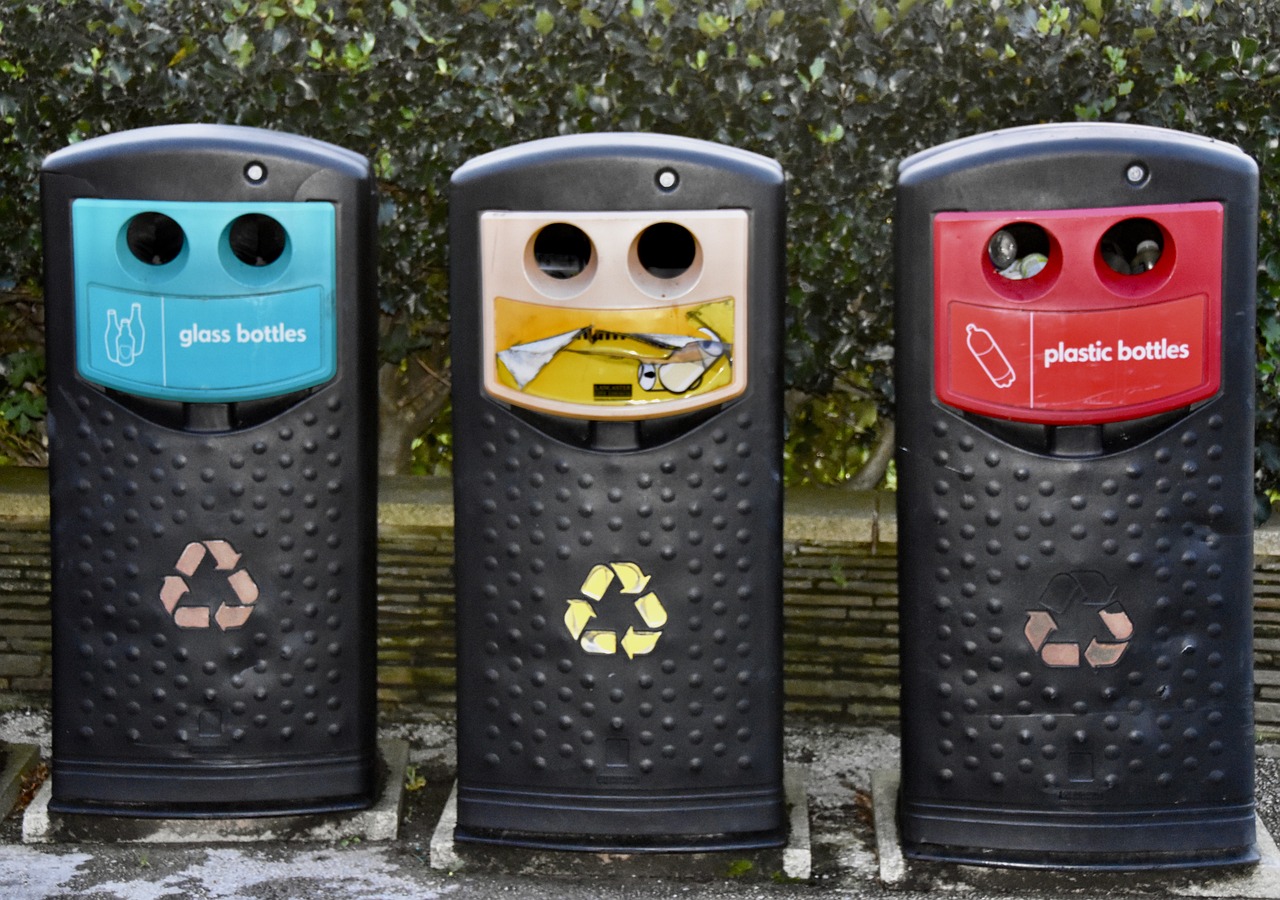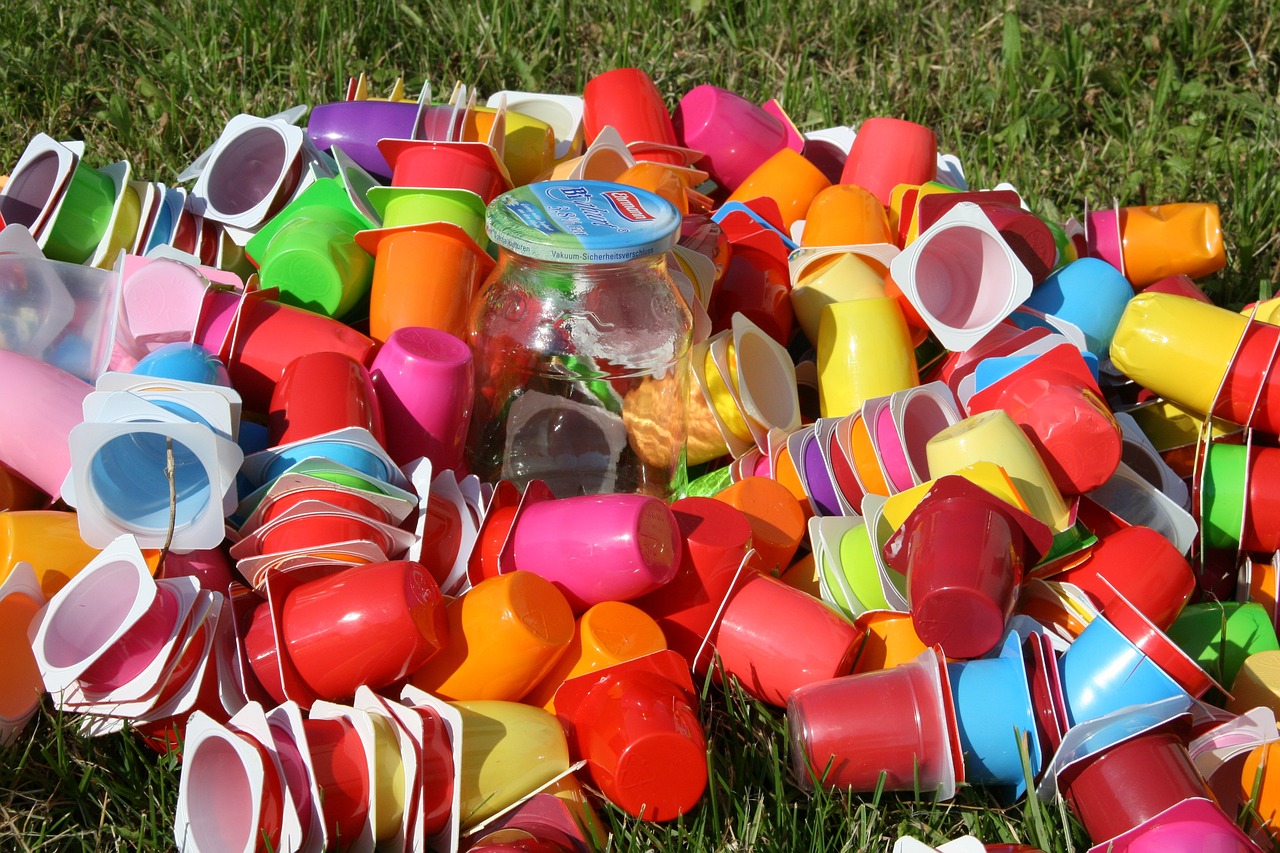The Benefits of Recycling Programs in Schools
Implementing recycling programs in schools can have a multitude of positive impacts on both the environment and the students involved. These programs go beyond just sorting trash; they play a crucial role in shaping eco-conscious individuals and fostering a culture of sustainability.
One of the primary benefits of recycling programs in schools is the significant reduction of waste. By encouraging students and staff to recycle, educational institutions can minimize the amount of trash sent to landfills, leading to a cleaner and healthier environment for everyone on campus.
Moreover, these programs provide invaluable environmental education opportunities. Students have the chance to learn about the importance of recycling, resource conservation, and the broader implications of their actions on the planet. It's a hands-on approach to learning that goes beyond textbooks and lectures, instilling lasting lessons about sustainability.
Engaging in recycling activities offers students a tangible way to contribute to environmental conservation efforts. This hands-on learning experience not only educates but also empowers students to take responsibility for their actions and adopt eco-conscious behaviors that can make a real difference in the world.
Resource conservation is another key advantage of recycling programs in schools. By repurposing materials like paper, plastic, and glass, educational institutions can save valuable resources, reduce energy consumption, and lower their carbon footprint. This not only benefits the environment but also teaches students the importance of efficient resource management.
Furthermore, implementing recycling programs can lead to cost savings for schools. By cutting down on waste disposal expenses and potentially generating revenue from recycled materials, educational institutions can allocate more resources to other essential areas, enhancing the overall learning environment for students.
Recycling initiatives in schools often extend beyond the campus to involve the local community. This community engagement fosters partnerships, raises awareness about environmental issues, and promotes a shared commitment to sustainability. It's a collaborative effort that strengthens the bond between schools and their surrounding neighborhoods.
On a more personal level, reducing waste through recycling programs can positively impact the health and wellbeing of students and staff. A cleaner school environment not only reduces the risk of exposure to harmful substances but also creates a more pleasant and conducive space for learning and working.
Lastly, by prioritizing recycling and sustainability, schools instill values of social responsibility in students. By teaching the importance of caring for the environment and being mindful of their ecological footprint, educational institutions empower students to become responsible and environmentally conscious citizens who can make a difference in their communities.

Reduction of Waste
Exploring the positive impacts of implementing recycling programs in educational institutions and how they contribute to environmental sustainability and student awareness.
Recycling programs in schools lead to a significant decrease in the amount of waste generated, promoting a cleaner and healthier environment for students and staff. By encouraging proper waste management practices, schools can minimize the volume of trash that ends up in landfills, reducing the overall environmental impact. This not only helps in keeping the school premises clean but also sets a positive example for students to follow in their daily lives.

Environmental Education
Environmental education plays a crucial role in shaping the mindset of students towards sustainability and conservation. By integrating recycling programs into the curriculum, schools create a hands-on learning experience that goes beyond textbooks. Students get the opportunity to understand the environmental impact of their actions in a practical way, fostering a deeper connection to the planet.
Through interactive activities like waste sorting, composting, and awareness campaigns, students not only learn about the importance of recycling but also develop a sense of responsibility towards preserving the environment for future generations. These programs spark curiosity and critical thinking, encouraging students to explore innovative solutions to environmental challenges.
Moreover, environmental education in schools extends beyond the classroom, involving students in community clean-up events, tree planting initiatives, and sustainability projects. This collaborative approach instills a sense of pride and accomplishment in students, empowering them to become advocates for environmental stewardship in their communities.

Hands-On Learning
Implementing recycling programs in schools not only benefits the environment but also provides students with valuable hands-on learning experiences. By actively participating in recycling activities, students can gain a deeper understanding of environmental conservation and the importance of sustainable practices. This hands-on approach allows them to see the direct impact of their actions, fostering a sense of responsibility and eco-conscious behavior.

Resource Conservation
Exploring the positive impacts of implementing recycling programs in educational institutions and how they contribute to environmental sustainability and student awareness.
Implementing recycling programs in schools not only promotes environmental sustainability but also plays a crucial role in resource conservation. By recycling materials like paper, plastic, and glass, schools can significantly reduce their environmental impact and contribute to a greener future. Through the reuse and repurposing of these resources, schools can save valuable raw materials, energy, and water, ultimately minimizing their carbon footprint.
Additionally, by incorporating resource conservation practices into their curriculum, schools can educate students about the finite nature of resources and the importance of responsible consumption. This hands-on approach to learning allows students to witness firsthand the benefits of recycling and understand the direct link between their actions and environmental preservation.
Furthermore, resource conservation through recycling programs can lead to cost savings for schools. By reducing the amount of waste sent to landfills, schools can lower their waste disposal costs and potentially even generate revenue from selling recycled materials. This financial benefit not only supports the school's budget but also reinforces the value of sustainable practices in a practical and tangible way.
In essence, resource conservation through recycling programs in schools is not just about reducing waste; it's about instilling a mindset of responsible resource management and environmental stewardship in the next generation. By fostering a culture of conservation and sustainability within educational institutions, we are shaping students to be conscious and proactive global citizens who understand the importance of preserving our planet for future generations.
Q: How can schools get started with implementing recycling programs?
A: Schools can begin by conducting a waste audit to identify the main sources of waste and determine the most effective recycling strategies. They can then establish partnerships with local recycling facilities or waste management companies to ensure proper disposal and recycling of materials.
Q: What are some creative ways to engage students in recycling initiatives?
A: Schools can organize recycling competitions, create educational displays about the impact of recycling, or involve students in upcycling projects to promote creativity and environmental awareness.
Q: How can recycling programs in schools benefit the wider community?
A: By engaging with the local community through recycling initiatives, schools can raise awareness about environmental issues, foster collaboration with community organizations, and inspire collective action towards a more sustainable future.

Cost Savings
Implementing recycling programs in schools can bring about significant cost savings in addition to environmental benefits. By reducing waste through recycling initiatives, schools can effectively cut down on waste disposal costs. Instead of sending recyclable materials to landfills, these items can be repurposed, potentially generating revenue for the school. Not only does this help the environment, but it also contributes to the financial sustainability of the institution.

Community Engagement
Exploring the positive impacts of implementing recycling programs in educational institutions and how they contribute to environmental sustainability and student awareness.
When schools embrace recycling programs, they often extend their reach beyond the campus, involving the local community in their sustainability efforts. This engagement creates a ripple effect, fostering partnerships and spreading awareness about the importance of environmental stewardship.
Through collaborative initiatives, schools and community members work together to promote recycling practices, organize clean-up events, and raise awareness about waste reduction. These partnerships not only benefit the environment but also create a sense of shared responsibility and unity within the community.
Furthermore, community engagement in recycling programs can lead to the development of long-lasting relationships between schools and local organizations. By working together towards a common goal of environmental sustainability, both parties contribute to building a greener and more resilient community for future generations.
By involving the community in recycling efforts, schools not only amplify the impact of their programs but also inspire a culture of environmental consciousness that extends far beyond the school grounds. Through collaboration and shared commitment, schools and communities can create a sustainable future together.
Coming soon...

Health and Wellbeing
When it comes to the health and wellbeing of students and staff, implementing recycling programs in schools plays a crucial role. By reducing waste through recycling initiatives, schools create a cleaner and healthier environment that directly impacts the physical and mental wellness of everyone on campus. Imagine a school where the air is fresher, the surroundings are tidier, and the overall atmosphere promotes a sense of well-being.
Not only does recycling contribute to a cleaner environment, but it also reduces the risk of exposure to harmful substances that may be present in waste materials. By actively participating in recycling activities, students and staff minimize their contact with potentially hazardous waste, thus safeguarding their health in the long run. It's like creating a shield of protection around the school community, ensuring a safer and more sustainable future.
Moreover, a school environment free from excessive waste and clutter can have positive effects on mental health. Cluttered spaces can lead to stress and anxiety, while clean and organized surroundings promote a sense of calm and focus. By instilling recycling habits and maintaining a tidy campus, schools contribute to the overall well-being of individuals, fostering a conducive learning and working environment.

Social Responsibility
Social responsibility is a crucial aspect of implementing recycling programs in schools. By prioritizing recycling and sustainability, educational institutions play a vital role in instilling values of social responsibility in students. These programs empower students to become environmentally conscious citizens who understand the impact of their actions on the planet and future generations.
Frequently Asked Questions
- What are the benefits of recycling programs in schools?
Recycling programs in schools offer a range of benefits such as reducing waste, promoting environmental education, conserving resources, engaging the community, and enhancing health and wellbeing.
- How do recycling programs contribute to environmental sustainability?
Recycling programs help in reducing the amount of waste sent to landfills, conserving natural resources, minimizing energy consumption, and lowering carbon emissions, thus contributing to a healthier planet.
- Why is hands-on learning important in recycling initiatives?
Hands-on learning allows students to actively participate in environmental conservation efforts, fostering a sense of responsibility and instilling eco-conscious behavior that can have a lasting impact on their attitudes towards sustainability.
- Can recycling programs in schools lead to cost savings?
Yes, implementing recycling programs can help schools save money by reducing waste disposal costs, potentially generating revenue from recycled materials, and promoting efficient resource management.
- How do recycling initiatives in schools promote community engagement?
Recycling initiatives often involve the local community through partnerships, educational outreach, and collaborative projects, fostering a culture of environmental stewardship that extends beyond the school environment.
- What role does social responsibility play in recycling programs?
By prioritizing recycling and sustainability, schools nurture values of social responsibility in students, empowering them to make environmentally conscious choices and become active contributors to a more sustainable future.



















